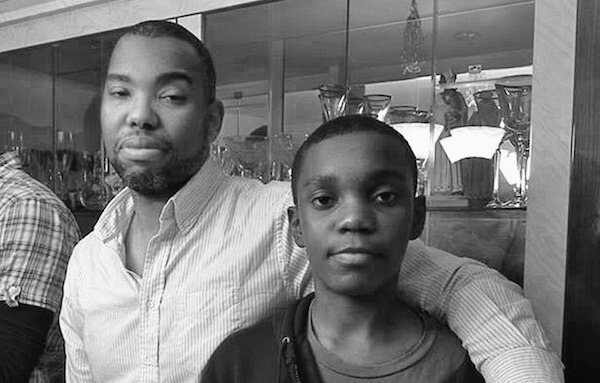Lotic’s debut album, “Power,” will be released on July 13. | TRI-ANGLERECORDS.COM
“Love and Light,” the opening track on transfemme singer/ producer Lotic’s debut album “Power,” takes a blissful music box-style melody played on bright, trebly synthesizers that could’ve come off a New Age record and develops it by layering much noisier sounds on top of it. The title track returns to a similar motif, but two minutes in moves on to synthesizer and percussion sounds closer to digital hardcore than Yanni. If “Love and Light” and “Power” did nothing but repeat their original melodies and tones, they would sound like the cheesiest sort of ambient music. But Lotic is fascinated with playing with those sounds to subvert them.
This is quite clear from the way they follow “Love and Light” with “Hunted,” which begins with them whispering “brown skin, missed the frame/ head’s a target/ actin’ real feminine/ make ‘em vomit.” That chant continues through the whole song but gets buried by its music most of the time. Lotic makes the kind of “electronic dance music” one can’t really dance to, with drum machines scattering in all directions and time signatures. Their first two EPs were entirely instrumental, but here they use their own vocals and singer Moro duets with them on “Heart.” But Lotic’s voice functions more as an instrument than a delivery system for words. I wildly misunderstood the lyrics to “Hunted,” which I only realized when I noticed the album’s press release included them.
With unsettling aggression and beauty, Lotic takes on racism, transphobia
The combination of pretty and ugly sounds recurs throughout the album. “Distribution of Care” layers a synthesized string section that would sound gorgeous in another context over beats that sound like a snare drum exploding. “Resilience” might not embody everyone’s idea of that concept: it too combines an attractive melody with booming and harsh percussion. The 87-second long “The Warp and the Weft” is harsh enough to recall the confrontational noise experiments of Throbbing Gristle and early Cabaret Voltaire. Rather than aiming for the nightclub, Lotic programs their drum machine toward glitch and industrial sounds.
While Lotic now lives in Berlin, they were born in Houston and explore their roots on “Nerve,” where they rap “H-Town in this bitch” and their music suggests “cloud rap” producers like Clams Casino. The song might be more successful if it lasted more than two and a half minutes; it comes across as a fragmentary goof. The lyrics and Lotic and Mono’s interwoven vocals on “Heart” evoke a kind of tenderness. Still, that mood feels awfully hard-won since it rests over a constantly changing tempo, which speeds up to some extremely fast sections.
The aesthetic of “Power” has a clear point, even if Lotic isn’t writing obvious protest songs. The alienation of being African-American and transfemme has inspired their music as long as they’ve been recording; their first release was a 2015 EP called “Heterocentric.” When Lotic repeats the musical conceit of beauty drowned out by bursts of noise, it expresses a sense of anxiety and unease. Much of “Power” is instrumental, and the rest isn’t oriented toward making its lyrics easy to understand without work from the listener. That’s a statement in itself: “Power” calls for active attention from its audience.
The press release for “Power” calls it “an expansive exploration of the many ways in which power can be expressed and experienced” and says it was inspired by the writing of the brilliant African-American social critic Ta-Nehisi Coates. And while Lotic doesn’t have much real-world power — doing remixes for Björk and opening for her in Berlin is the highest they’ve risen — they exercise a certain manipulation over this album’s listeners by creating a seductive surface and then opening up a world of aggression underneath it. Sound like the society we live in?
When making political music, many artists think that means they must write lyrics directly attacking current social problems. While this has led to some great music, it also has a tendency to steer them toward preachiness and an aesthetic that can only speak to the converted. Lotic’s views are embodied by their beats at least as much as their lyrics, but it’s unmistakable that they have a great deal to say about racist and transphobic alienation. “Power” is uneasy listening par excellence, and the angst it expresses could hardly be more pointed. But the beauty it also expresses suggests the very tentative possibility of hope under grim conditions, even if the production and arrangements of Lotic’s songs repeatedly depict it getting stomped on.
LOTIC | “Power” | Tri Angle Records | Drops Jul. 13 | tri-anglerecords.com

































